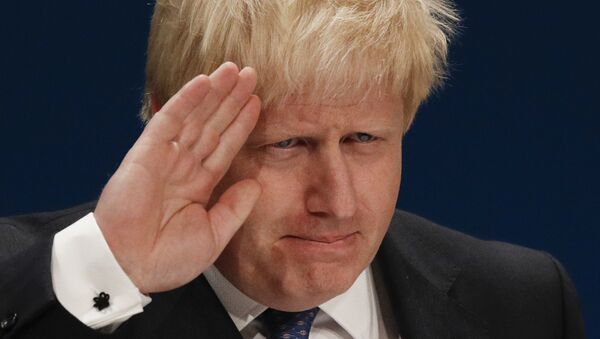The UK is to re-open a naval facility in Bahrain, create a permanent army presence in Oman and set up new defence centres in Dubai.
The decision has been made despite the long shadow of a dark chapter in British foreign policy history.
The Suez crisis of 1956 remains infamous as one of the UK's worst foreign policy disasters. A secret deal between the UK, France and Israel to overthrow the Egyptian Dictator Colonel Nasser, in order to take control of the Suez Canal, failed spectacularly.
The prime minister of the day, Anthony Eden, resigned in disgrace and on the world-stage, the UK suffered a major loss of prestige and credibilty.
Diplomats at the Foreign Office at the time have spoken of how the episode dented the confidence of the UK for at least a generation.
#OnThisDay in 1956: #British & #French troops withdraw from Port Said & Port Fuad, ending the Suez Crisis. pic.twitter.com/S0wcuFz6m9
— Historic Newspapers (@HistoricPapers) December 23, 2016
Now, the Foreign Office's new boss, the effervescently optimistic Boris Johnson, is hoping to turn a new page.
The revelationss about the UK stepping up its defence engagement in the Gulf and Asia come two weeks after Mr. Johnson gave a speech in Manama in Bahrain, in which he indicated that there has been a significant shift in the UK's view of the Middle-East.
Boris of Arabia by Bob Moran. The political cartoon gallery will be open tomorrow between 11 and 4 o'clock. pic.twitter.com/tazSmCYPFh
— Political Cartoon (@Cartoon4sale) December 10, 2016
It's triumphalist title was "Britain is back East of Suez."
Unfortunately Boris was a Oxford classics student and not a historian, otherwise he would have learned why the UK withdrew from East of Suez https://t.co/CqTLVgdiLP
— Alexander Clarkson (@APHClarkson) December 10, 2016
Johnson referenced a decision in 1968 made by then Labour Chancellor of the Exchequer, Roy Jenkins. Jenkins had wanted to save money, cut defence and focus on the Common Market. It was a decision that Boris Johnson says was a mistake.
"The flag came down; the troops came home, from Borneo, from the Indian Ocean, from Singapore, and yes from the Gulf and we in the UK lost our focus on this part of the world," Johnson said.
"I want to acknowledge that this policy of disengagement East of Suez was a mistake and in so far as we are now capable, and we are capable of a lot, we want to reverse that policy at least in this sense: that we recognize the strong historical attachment between Britain and the Gulf, and more importantly, we underscore the growing relevance and importance of that relationship in today's uncertain and volatile world."
"Britain part of your story for 200 yrs & will be with you for centuries to come" Boris Johnson w/ Gulf partners #ManamaDialogue #IISSMD2016 pic.twitter.com/k4QLarbBYl
— Foreign Office (FCO) (@foreignoffice) December 10, 2016
The Royal Navy is already operational in Bahrain, with the HMS Middleton being visited by Prince Charles earlier in 2016.
Look @RoyalNavy The Admiral of the Fleet HRH The Prince of Wales visited HMS Middleton today alongside in Bahrain https://t.co/SOwllpOioT
— CMF (@CMF_Bahrain) November 10, 2016
The UK's impending military expansion is being seen as recognition of the region's growing global importance.



